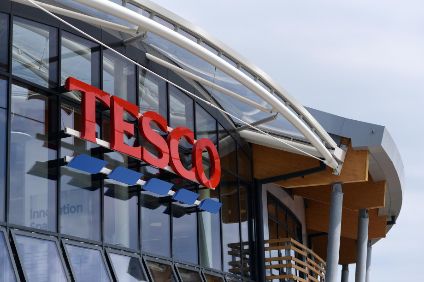
Tesco has made a commitment to boost sales of plant-based products such as ready-meals and meat alternatives over the next five years as the UK supermarket chain increases work with the World Wide Fund for Nature (WWF) to halve the environmental impact of food production.
It has set a target to increase sales of meat-free products by 300% by 2025, claiming it is the first UK retailer to make such a commitment.

Discover B2B Marketing That Performs
Combine business intelligence and editorial excellence to reach engaged professionals across 36 leading media platforms.
Tesco said it will introduce plant-based meat-free products across 20 different categories, including ready-meals, breaded meat alternatives, sausages, burgers, quiches, pies and party foods.
CEO Dave Lewis said: “We know from our experience in tackling food waste that transparency and setting ambitious targets are the first steps towards becoming a more sustainable business. Our transparency on protein sales and our new sales target for meat alternatives gives us the platform to becoming more sustainable and will provide customers with even more choice.
“These measures are just part of the work we’re doing with WWF, bringing together for the first time a host of sustainability metrics to help us halve the environmental impact of food production.
“We also call on the government to do more by helping to scale up innovations and create a level playing field to ensure companies drive sustainability in their supply chains.”

US Tariffs are shifting - will you react or anticipate?
Don’t let policy changes catch you off guard. Stay proactive with real-time data and expert analysis.
By GlobalDataAs part of the project, Tesco said it will “invest in value so that affordability is not a barrier to buying plant-based meat alternatives”, and will work with its suppliers to boost innovation in the category. It will place meat and meat-free products together in stores to encourage more shoppers to buy.
Tesco and the WWF launched the Sustainable Basket Metric in 2019 and the retailer has so far achieved 11% of its target to halve the environmental impact of the average shopping basket.
The metric measures environmental impacts of food across seven different categories: climate change; deforestation; sustainable diets; sustainable agriculture; marine sustainability; food waste; and packaging waste, Tesco said.
Tanya Steele, the WWF CEO, added: “It’s great to see this sector-leading step from Tesco. Tackling the environmental impact of what we eat and how we produce it has never been so urgent.
“WWF’s Living Planet Report 2020 has revealed that, in the last 50 years, wildlife populations have declined on average by 68%. The food system has been identified as the biggest culprit, but also presents one of the greatest opportunities to reverse this trend; rebalancing our diets is a critical part of that.”



